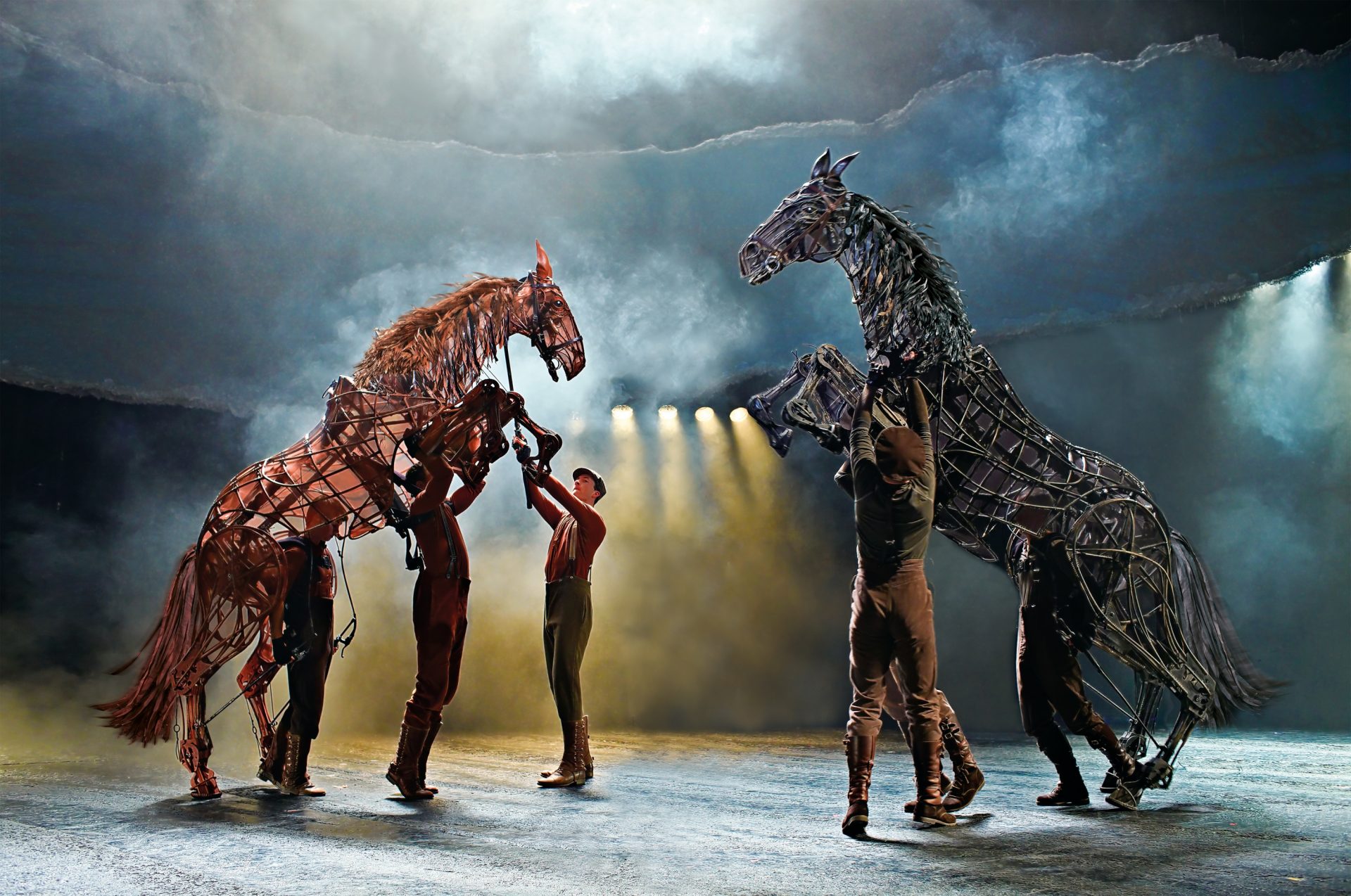The touring production of War Horse is a theatrical triumph that leaves its audience both heartbroken and uplifted. Based on the British war novel by Michael Morpurgo, at its center is the bond between farm boy Albert and his beloved horse Joey – a simple, unwavering love that endures the brutality of the First World War. What begins in the rolling fields of Devon soon collides with the churned mud and thunder of the front line, told through the eyes of Joey and the cast of characters he meets along his journey.
The work of South Africa’s Handspring Puppet Company is nothing short of miraculous. Their life-sized horses don’t feel like constructions of wood and fabric; they live and breathe. From the twitch of an ear to the tremble of exhaustion, every movement is charged with emotion. The puppetry translates into other figures, birds flying overhead, crows picking at corpses or soldiers riding into battle. The puppetry never feels like a trick, instead it becomes the soul of the story – a form of poetry in motion that carries more truth than realism ever could. This motif of the puppeteers acting as the “soul” is emphasised further during an emotional death late on as the actors slowly remove themselves from the contraptions, going from a living breathing creature with a personality to an inanimate object.
The staging is equally powerful. Stark lighting and projections onto a shred of paper are used to project images to signify the passing of time, seasons, and places. Sound and music weave seamlessly between scenes; from the ache of folk melodies to the loud overwhelming terror of bombardment. This combination, alongside the vast cast, take the audience on a journey through quiet countryside, smouldering battlefields, and fleeting moments of tenderness which all tie together wonderfully.
What makes War Horse so enduring is its honesty. It doesn’t sanitise the horrors of war, nor does it sentimentalise its losses. We experience first hand the cold and swift actions that rob life from those caught in the crosshairs, regardless of age or ethnicity. Instead, it honours the suffering of soldiers and civilians, and of the animals who were drafted into human conflict while insisting on the resilience of love and loyalty. In doing so, the production becomes more than a war story; it becomes a meditation on endurance and compassion. A message that’s needed now more than ever in the face of ongoing conflicts and threat of war around the world.
When the lights fade, you leave carrying the echo of hoofbeats and the memory of one boy’s devotion. War Horse doesn’t just show us history; it asks us to look inward, to recognise the courage it takes to hope in times of despair. This is not simply theatre, it’s an experience of humanity at its most fragile, and its most indomitable.


Comments